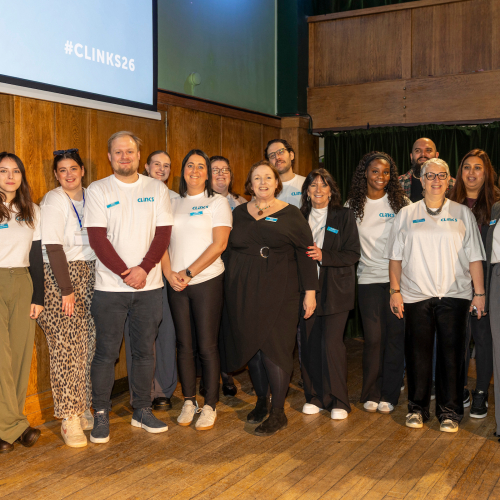If offenders' health needs are not included in a local area Joint Strategic Needs Assessment, it is highly unlikely they will be addressed by local services. Recent research by Public Health England (PHE) suggests there is a great deal of variation in this: Just under half the Joint Strategic Needs Assessments produced by 147 local authorities across England included a direct reference to the health needs of offenders. Of the other half, almost all included a reference to related issues, such as substance misuse or mental health needs. Only three local authorities had no reference to health and justice issues at all.
Joint Strategic Needs Assessments
Since 2012, local authorities have a statutory duty to set up a Health and Wellbeing Board, to undertake a Joint Strategic Needs Assessment (JSNA) of their locality. The JSNA is meant to determine the health needs of the local population and also contribute to the work and people necessary to improve it. (You can find out more about the role of Health and Wellbeing Boards in our guide to Navigating the Health Landscape)
The importance of the JSNA should not be underestimated, since it forms the basis for the Joint Health and Wellbeing Strategy which sets out local priorities for commissioning health and care services. This strategy is one of the more critical health promotion measures any local authority will undertake. The significance, resources and expertise attributed to both the assessment and the strategy are likely to make all the difference to the success of an individual authority’s local health care work, and that of the local NHS. Ideally, both should be living documents to which all local partners contribute, to improve health and reduce health inequalities.
Reflecting the needs of offenders
During September 2014 PHE's Health & Justice Leads conducted a survey of the published JSNAs across England to evaluate how far they included health & justice needs. Their method was to undertake an examination using search terms to detect direct references to health & justice (i.e. offender, prison, crime, criminal justice, court) which would indicate that the needs of people in contact with the Criminal Justice System were being described or at least considered. They also searched for indirect references to health & justice, such as identifying links between drugs & alcohol and mental health with offending. Obviously the distinction between 'direct' and 'indirect' references is not always clear-cut, so we'd be really interested to hear whether you agree with their opinion for your local JSNA.
You can download their full findings in this spreadsheet. It describes the results of all 147 local authority structures in England who have published their JSNAs online, along with links to each JSNA. This includes upper tier authorities as well as unitaries and borough or district councils. Of these, 73 (49%) had direct references to health and justice within their published JSNA documents and 71 (48%) had indirect references. Only three (0.2%) from the total had no obvious direct or indirect references to the population of interest and the services they might require.
Given that the vast majority of offenders reside in the community, these findings indicate that further work is required to develop the profile of their needs and heighten the importance given to addressing the health needs of offenders in the community and in detention. Of course, considering the needs of this part of the population in the JSNA is no guarantee that they will be given priority in the Joint Health and Wellbeing Strategy. However, without being included the JSNA it is almost certain they will not be. In this sense, it is both encouraging to see offenders' needs recognised in almost half the Local Authority areas surveyed; and a challenge to ensure they are reflected in every JSNA in future.
What do you think?
Are the needs of offenders sufficiently addressed in your local JSNA? Do you agree with the findings from PHE's survey?
If Health and Wellbeing Boards are to produce JSNAs that provide an accurate picture of the health needs of local people and allow them to develop appropriate strategies to deal with those needs, they will need access to a range of information —from the voluntary sector as well as health, public health and social care. By developing relationships with our local Health and Wellbeing Boards, our sector can play an important role in raising the profile of the needs of those in contact with the Criminal Justice System, and the importance of addressing them; which will improve the health of the community, reduce health inequalities and support social justice.
- What is your experience of talking to your Health & Wellbeing Board about the needs of offenders?
(If you've not been in touch with them before, you can find contact details on Regional Voices' Who's Who page; most have a voluntary sector representative listed) - Have you been involved in developing a Joint Strategic Needs Assessment?
- How can we make sure the needs of offenders are prioritised in future?
We'd love to hear your views; comment below or email hazel.alcraft@clinks.org to get in touch. And for more information, guides and resources on this area of work, visit out offender health page.
What's new
Blogs
GUEST BLOG: #Clinks26 - Understanding the Impact of Lived Experience at My First Clinks Conference
Publications
Latest on X
The role is for a leader from an organisation focused on racially minoritised people, with expertise in service delivery, policy, advocacy, or related areas in criminal justice. Racial disparities are present at every CJS stage. This role ensures these voices are central in shaping policy to help address and eradicate them. Apply by Mon 18 Nov, 10am. More info: https://www.clinks.org/voluntary-community-sector/vacancies/15566 #CriminalJustice #RR3 #RacialEquity

